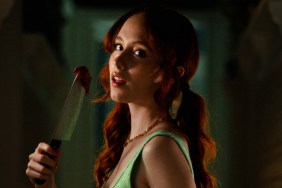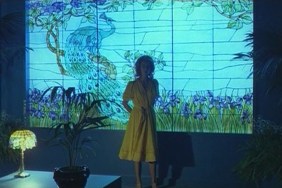
When I first heard Criterion would start releasing titles from their Collection onto Blu-ray I thought of several of their highest profile films that I would love to see and own in high definition. Obvious titles such as Kurosawa’s Seven Samurai, Bergman’s Seventh Seal, Godard’s Breathless, Fellini’s 8 1/2 and several others, most of which (including all four I just mentioned) are already available on Criterion Blu-ray. Now you can add one more that immediately came to mind… Ingmar Bergman’s Fanny and Alexander, the prolific director’s final feature film and one hell of a film at that.
If you’re a fan of Bergman’s work you simply must own this film as it has everything you’ve ever found intriguing in the director’s work all wrapped into one master opus. While the Criterion jacket calls it the director’s “warmest” film there is still plenty of darkness to be explored as the story of the Ekdahl family is told through the eyes of ten-year-old Alexander as he and his sister Fanny do their best to cope and navigate the world following the death of their father and struggle against their stepfather once their mother remarries. The film may be warmer than Bergman’s previous features but the following exchange between brother and sister speaks to the second half of this feature:
I think we’ve got a terrible stepfather.
And the sister is crazy.
And that tub of lard that has to be fed.
I don’t want to live here.
This is a film in two parts and I don’t think I would necessarily call the latter of these two parts “warm” at least not the majority of it.
Unlike Criterion’s previously released DVD editions, you don’t get to decide between just purchasing the three-hour theatrical version of the deluxe set with both the theatrical version and the five-hour television version. With the Blu-ray you get both, no questions asked, just as it should be.
Before receiving this set I owned the previously released five-disc Criterion DVD edition with both the television and theatrical versions, though I still hadn’t watched the television version. A big mistake on my part, since you really haven’t seen this film until you’ve seen all five hours of Bergman’s vision. In fact, I don’t think you’ll ever want to watch the theatrical version again after seeing the television version. The story remains intact in the shorter, three-hour version, but plenty is lost in mood and tone that once you’ve seen it you don’t want to see the film without it. By comparison, I don’t know about you, but now that I own the extended editions of The Lord of the Rings films I won’t ever sit down with the theatrical versions again and the difference between the two versions of Fanny and Alexander is even greater than it is in those films.
As for the features, you get an audio commentary on the theatrical version, an interesting 40-minute interview feature with the cast and crew talking about Bergman and their time working with him, an interview between Bergman and film critic Nils Petter Sundgren discussing this as Bergman’s final feature film and the path he took to get here and finally, the main attraction, a making of documentary created by Bergman himself.
The Making of ‘Fanny and Alexander’ runs 1 hour and 49 minutes and it gives incredible insight into the making of the film as Bergman guides the shooting of the film from day one to completion. As the documentary plays, descriptions of what you’re about to see are written on the screen and explained by Bergman himself before he just lets the camera roll, giving us incredible insight into his process while also giving you so many different looks at the making of a seen you begin to understand the decisions he’s making and realize why. If you were ever confused as to why a director would use a close-up rather than a wide shot you will be made fully aware just by watching this documentary as Bergman and longtime cinematographer Sven Nykvist work to shape the film from the height of a chandelier to the slightest of camera movements.
Speaking of Nykvist, it’s his work on this film that makes it an instant consideration for Blu-ray and Criterion’s presentation takes full advantage of his cinematography. Nykvist creates some of the most beautiful images you’ll ever see on film and he did so with Bergman on some of the director’s most highly touted features including Persona and The Virgin Spring. Here he uses rich, predominantly red colors as much of the first half of the film is spent in the Ekdahl family home and in the latter half the cold concrete walls of Bishop Edvard Vergerus’ home take control before order is restored.
Beyond technical expertise, I’d like to also point out the performances, most specifically Bertil Guve as Alexander, Jan Malmsjo as the villainous stepfather Bishop Edvard Vergerus and Jarl Kulle as Gustav Adolf Ekdahl. This isn’t to say there aren’t more names to praise, but these are the three performances and characters that truly stuck out for me.
Overall, this is just a fantastic package and as always Criterion has done everything to make it worth purchasing by presenting the film with a superior image, superior sound and extras that truly are special and aren’t the typical junk studios love to use to pad their releases and make them appear to have greater value than they really do. Additionally, instead of a five-disc set, the set is now down to three discs with the five-hour television version now on one disc and the extras also making up only one disc, once again proving the benefit of the higher storage capacity of Blu-ray.
I recommend this film as a Bergman fan, but I also think it reaches outside the Bergman box and can bring in fans that may not be as open to his darkly existential explorations from the past. The Ekdahl family is a family worth getting to know and Criterion is offering the very best way to make that possible.









